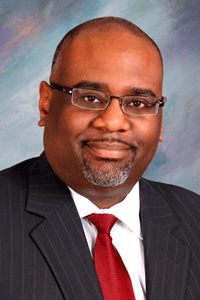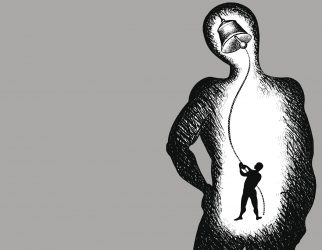Tools for Discovery is a monthly profile series that inspects the computer programs, gadgets and methods behind WID’s ideas and discoveries.

Anthony Gray is a distinguished scholar at WID and is the president and CEO of the Institute for Global Ethics (IGE), a nonprofit organization dedicated to promoting ethical action in a global context headquartered in Madison, Wis., with offices in New York City and Rockport, Maine. Gray currently represents District 9 (Madison) on the Board of Governors of the Wisconsin State Bar Association and is the past-president of the Nonresident Lawyers Division of the Wisconsin State Bar Association.
What do you work on?
In addition to being a distinguished scholar at WID, I run IGE, a think tank and nonprofit, non-partisan, non-sectarian and non-religious organization that provides ethics training to corporations, schools, nonprofits and governmental agencies. Our central thesis is that there exists a pool of shared core values so important to people that it shapes, influences and directs human behavior. What you find when you go through the process of value identification is how remarkably similar those core values are regardless of religious tradition — or lack thereof, race, class or geography. These core values cross all those demographic demarcations. We believe these core values are shared universally. The second part of our thesis is that the process of sound ethical decision-making is a skill set, which like any other skill set, can be learned. And if you practice you can get better.
There is an embarrassment of riches regarding the talent at WID that could add value to our work. There is talent everywhere at WID relevant to our research. Anywhere else in the world, I would have to search — and pay for — this insight. Here, I can go knock on someone’s door and get counsel from one of the world’s leading authorities on whatever discipline is needed. That’s an astounding opportunity.
“My ultimate tool for discovery is curiosity. Humans have a need to know. There is something innate that makes us want to know that which we did not know yesterday.”
— Anthony Gray
What are your tools for analysis?
We have some strategic methodologies, including moral awareness, values definition, ethical analysis and dilemma resolution, which we use to help groups identify their core values and to help them think through how those core values can or should impact their behaviors. We use a mixture of lectures, group discussion and small-group exercises.
What are your tools for writing?
I use two tools: one’s real and one’s ephemeral. The real tool is voice recognition software. I’ve realized the hard way that I cannot manually type at the speed that I think. When I type, I lose 80 percent of what I’m thinking about when I have to deliberately decide which key I have to hit with my pinkie. The other tool I use is process. On any given day, you will find me in one of the Discovery Building conference rooms pacing, walking in circles and waving my arms. If you saw me, you might think that something absolutely terrible was happening; however, I find there is something rhythmic and meditative for me about walking in circles and punctuating the air. That’s how I write.
What are your tools for collaboration?
I want to raise the profile of the work that’s being done here at WID. I am awestruck at the caliber of thought that takes place in the Discovery Building. As someone with the ability to focus external attention, I feel that it’s part of my contribution to WID to make sure that the state of Wisconsin and the rest of the country understands what is going on in this building. The Institute for Global Ethics has hosted seminars and meetings with its board of directors in the Discovery Building.
What is your ultimate tool for discovery?
My ultimate tool for discovery is curiosity. Humans have a need to know. There is something innate that makes us want to know that which we did not know yesterday. Religious people talk about it as the divine spark — everyone is made in God’s image. Secular people think this need to know is just hardwired in us. I’m not sure it matters where it comes from. But it’s there, and it is the ultimate tool for discovery because it drives us to explore and pursue new areas of inquiry.
— Interview conducted and edited by Mary Sussman


You must be logged in to post a comment.